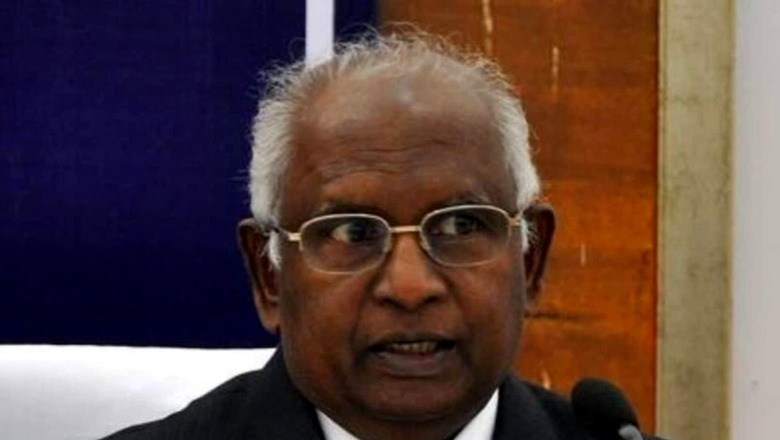
views
The Ministry of Social Justice and Empowerment recently constituted a three-member commission to be headed by ex-CJI K G Balakrishnan for deep understanding of whether Scheduled Caste (SC) status can be accorded to Dalits who have over the years converted to religions other than Sikhism or Buddhism.
Currently, only those belonging to Hindu, Sikh or Buddhist communities are categorised as SCs. Initially, this provision was for Hindu communities. The order was amended in 1956 to include Sikh communities and again in 1990 to include Buddhist communities as SCs.
The commission is to document and understand in what circumstances these communities converted to Christianity and Islam and also to understand the changes an SC person goes through after converting to another religion and its implications on the question of including them as SCs. The Balakrishnan Commission is also expected to understand the impact of such a decision on the existing SC communities.
It is a controversial issue in Indian society and politics. Several representatives of existing SC communities have opposed the inclusion of converts to other religions. However, commissions such as Rang Nath Mishra Commission, National Minority Commission report, etc. have argued for extension of reservation to Dalit converts in Christianity and Islam.
Firstly, making the commission does not mean that government is moving towards any stand on it. It only shows the government is serious to respond to this question raised by various reports, community representatives and the Supreme Court.
Proponents of the argument argue that as it happened in case of Sikhism and Buddhism, it can be done for Dalit Christians and Dalit Muslims, too. The second argument is that Dalits, who have converted to Christianity and Islam, are facing similar kinds of social conditions such as social exclusion and invisibility. They are being treated somewhat similar to how they were in the Hindu society. Changing of religion could not help improve their social condition and end their sense of separation and misery. Like Hindus, the caste-based division is also found among Muslims such as Lalbegi and Bhangi communities involved in carcassing. Separate churches are also found for Dalit converts in Indian Christianity.
However, understanding the entire structure of social exclusion of converts among Muslims and Christians needs deeper research. Unfortunately, except a few papers, we don’t have ethnographic studies on these issues. In this condition, before taking any decision, we need to qualitatively document daily exclusions and suffering of Dalit Muslim and Dalit Christian converts based on social indicators.
Reservation and protective discrimination-based policies, on the one hand, give sense of empowerment to those who are eligible for it and also raise hopes among those who aspire to get socio-economic mobility. As an important constituent of development and empowerment, reservations create hope and aspirations for the future. Various marginal communities, who are still backward, seek reservation opportunities.
However, any decision around it leads to ‘for and against’ arguments in our society, which may produce gain and recovery in electoral democracy.
It is now upto the SC and Government of India to tackle this issue.
Read all the Latest Opinion News and Breaking News here

















Comments
0 comment